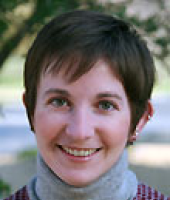ARP Training Committee
Jenn Lodi-Smith
Canisius College

The training committee currently had three primary tasks in the past year:
The committee continues to maintain the graduate training list! This list provides links to graduate programs with ARP affiliated faculty. We hope you find this resource useful. Please let Jenn Lodi-Smith know if you notice an error.
The committee took part in a task force lead by APA Division 2 (teaching) to make recommendations to in introductory textbook authors on content. As part of an advisory effort from SPSP, the committee was asked to give input on personality content in particular. The committee, with Julie Norem as a guest advisor, forwarded the following recommendation to the SPSP advisory group: "The committee was in agreement that a chapter on modern personality psychology is not the place for pre-WWII theories in psychology and that intro texts would do well to create a history & systems chapter distinct from personality chapters. While certainly historical context should be given in modern sections, this should be weighted so that the majority coverage is given to modern work. Topics of coverage included assessment reliability and validity, types vs. traits, and the trait/goals/narrative framework often used by personality psychologists. All agreed there needs to be emphasis on psychology as a science and that, ultimately, individual authors should make their own choices regarding the specifics of content." The SPSP advisory group then prepared the following recommendations for the APA Task Force:
- Separate History and Systems from Personality with the Personality chapter grounded in history (as every chapter should be) but with a primary focus on modern personality research (i.e., projective test idea and term)
- Framing broadly in a traits, goals (etc.), narrative approach
- List of recommended topics from a survey of ARP and SPA member feedback
- Ultimately, individual authors should use their judgment
One of the recent efforts of the committee has been to develop resources for non-academic career paths. The training committee prepared a list of companies employing ARP members in the non-academic sector that parallels the graduate training list. In addition, committee member Albrecht Küfner co-authored a piece on non-academic personality psychology with Ryne Sherman for this issue of P. This represents the launch of a regular feature on non-academic paths in P.
We hope you find these efforts useful and welcome suggestions for additional ways we can help ARP continue to thrive!
Jenn Lodi-Smith
Training Committee Chair